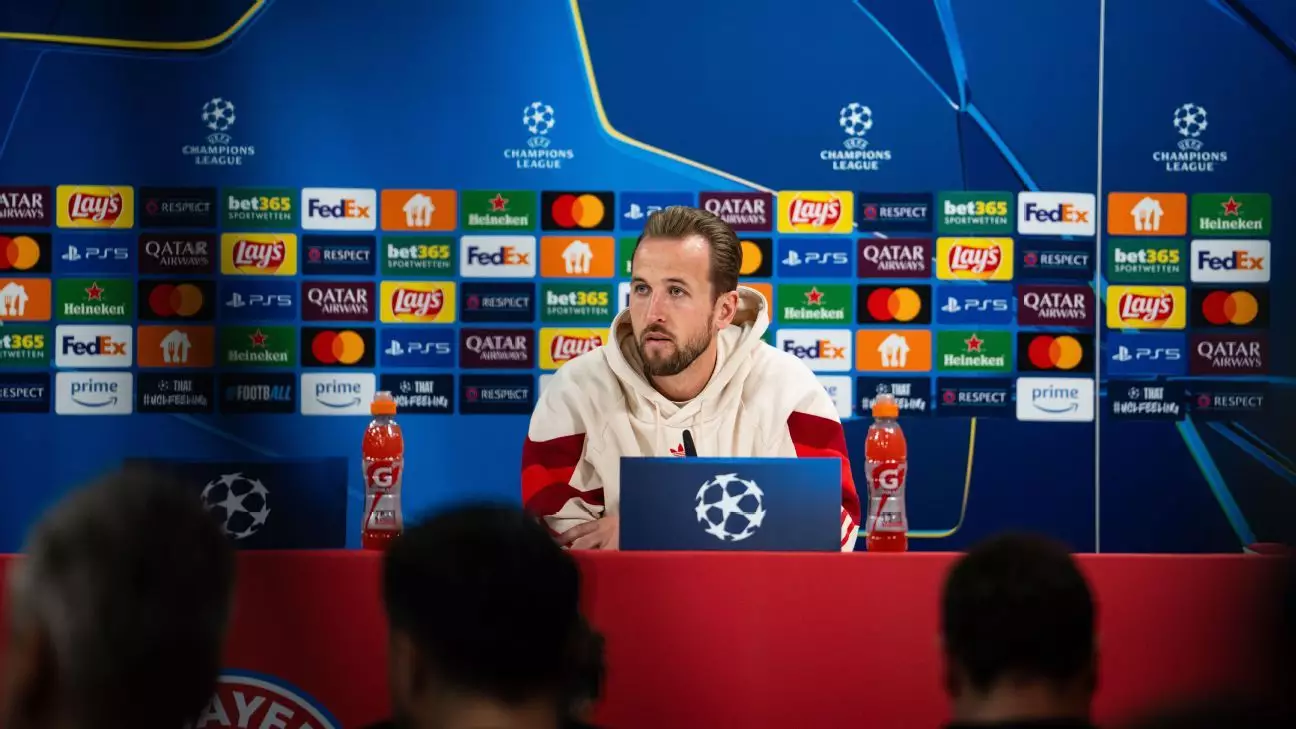Recently, Harry Kane has found himself in the spotlight, facing critique from former footballer Dietmar Hamann. The remarks made by the ex-Bayern Munich, Liverpool, and German midfielder have raised questions regarding Kane’s ability to score in high-stakes matches. Hamann posited that despite Kane’s impressive statistics, such as 64 goals and 21 assists since joining Bayern Munich from Tottenham in 2023, the forward has not shown his mettle when needed most. This scrutiny is especially poignant given Kane’s status as a prominent player in both the Bundesliga and the England national team.
On the surface, Kane’s numbers appear overwhelming. His 36 goals led to him receiving the Torjägerkanone award in his inaugural season in Germany. This ongoing season has been noteworthy as well, with Kane netting 20 goals in just 17 matches, including remarkable performances featuring multiple goals against teams like Holstein Kiel and Stuttgart. However, it is vital to assess these accomplishments within the context of competitive football. While Kane’s feats against less formidable opposition are commendable, the question posed by Hamann—whether Kane can deliver when it truly matters—remains relevant.
The reality is that in key encounters, such as a significant 4-1 loss to Barcelona, Kane was unable to contribute to the scoreboard. Furthermore, he did not score in matches where expectations were undoubtedly higher, including encounters against Bayer Leverkusen, Aston Villa, and Benfica. These performances can leave a lingering doubt about his capacity to perform in the clutch.
Though Kane has struggled to secure silverware in his professional career, he has consistently illustrated his knack for goal scoring. However, the harsh scrutiny from figures like Hamann has ignited discussions around his impact in crucial games. Criticism is not uncommon; many athletes face disproportionate judgement, particularly when they are expected to be the standard-bearers of their teams. Kane’s perspective, as expressed in a recent news conference, suggests that the narrative is perhaps overly simplified. He noted that his commitment to the team’s success transcends individual accolades, claiming that contributing significantly without scoring can also be a mark of a successful performance.
Kane’s assertion of focusing on team victories instead of individual scoring further illustrates his perspective. He suggested that collective success is more pertinent than the number of goals he registers, stating that he would take three wins without scoring over individual glory. This mindset is crucial to understanding the complexities of a striker’s role: their influence on the game goes beyond mere numbers.
Looking Ahead
With Bayern Munich gearing up to face Paris Saint-Germain in their upcoming Champions League clash, the stakes continue to rise. Kane finds himself under considerable pressure to deliver not just for himself but also for his teammates and supporters. While the assessment of Hamann has generated controversy, it has also served as a catalyst for Kane to reaffirm his commitments to both scoring and achieving team goals.
As fans anticipate the match, Kane’s performance will no doubt be a focal point. Success against elite clubs such as PSG could silence critics, reinforcing the belief that he can rise to the occasion. It remains to be seen whether Kane will truly gear up to meet the expectations his transfer fees brought with it, but one thing is clear: the narrative surrounding his career is evolving with each match.
While elite athletes like Kane undoubtedly face immense pressure to perform, it is essential to appreciate the multi-faceted nature of football. Although team success is ultimately the goal, individual excellence can often be subjectively measured. As Kane continues to assert his place in the footballing hierarchy, each match represents a new opportunity to redefine skepticism and elevate his status on the grand stage.

